- Study at the MUK
- Faculty of Music
- Faculty of Performing Arts
- Pedagogical Study Programmes
- Doctoral Programme
- Training Courses/Academic Diploma Courses
- International study programmes
- Co-registration
- Student Admissions Office
- Lecturers
Current PhD Projects
Philipp Gerschlauer
Microtonality and Bebop: Exploring the Use of Various Tuning Systems in Bebop
Scientific supervisor Univ.-Prof. Stefan Schmidl
Artistic supervisor Univ.-Prof. Lars Seniuk
Key Research Areas Interpretive Research, Composition/Music Theory
Biography
Philipp Gerschlauer is a renowned saxophonist, musician, and educator, known for his pioneering work in integrating microtonal elements into jazz music. He has divided the octave into 128 notes on both saxophone and within his compositions, pushing boundaries in the genre. In addition to his performances, Gerschlauer shares his expertise through teaching clinics, solidifying his reputation as a leading figure in microtonal saxophone.
Description of the doctoral project
My PhD project investigates the integration of microtonal tuning systems within Bebop, a jazz style known for its complex harmonies and improvisation. Microtonality refers to the use of pitches outside the standard 12-tone equal temperament tuning system. The project explores how these unconventional tunings can expand the harmonic and melodic vocabulary of Bebop, which traditionally relies on chromaticism and functional harmony but has not yet deeply engaged with microtonal possibilities beyond “blue notes.”
Research Questions
- How can microtonal tuning systems enhance Bebop’s harmonic and melodic structure?
- What new creative and stylistic possibilities can microtonality bring to jazz musicians?
- How can musicians practically implement microtonality in jazz performance (e.g., modified instruments, software)?
- How can microtonality be integrated into jazz education, and what are the implications for broader pedagogical practices?
Methods
I combine artistic practice with theoretical analysis. This includes studying Bebop standards, composing and improvising using microtonal scales, and collaborating with jazz musicians in practical ensemble settings. I will also conduct qualitative interviews with musicians to document their experiences working with microtonality. Recordings of these performances will form part of the research documentation.
Theoretical Framework
The project draws from Western music theory, particularly the study of historical tuning systems, and engages with the cultural significance of Bebop within African-American history. By blending European microtonal traditions with the Afro-American roots of jazz, this research contributes to the decolonization of music theory while also opening new avenues for artistic exploration.
Documentation
The research will be documented through audio and video recordings of performances, written transcriptions, and theoretical analyses. A blog will be used to share research developments, providing transparency and inviting feedback from the academic and artistic communities.
Tara Haçikoğlu (Erasmus)
Resonant Doubles
Biography
Tara Haçikoğlu is a theatre director, performer, and educator with experience in the
performing arts, specializing in physical theatre and embodied performance. She has received professional training from institutions and artists emphasis on clowning, movement-based theatre, and devised performance.
Her artistic work spans international and national productions, including Matilda the Musical (Cloud Theater, 2022), 2084: Arrival of the Golden Age (Ladder Art Company, 2023), and two original pieces presented at Zorlu PSM Shorts-Istanbul (2024) and MOIRA(2025)-A Physical Theatre Show. She has collaborated with SOS(Turkey) &Clowns Without Borders, performing in disaster-affected regions. She also participated in the IFTR 2025 conference as a member of the Performance as Research Working Group in june 2025.
Alongside her practice, she teaches physical theatre and basic puppetry lessons at university level and mentors young performers in creative movement and drama. She is currently a PhD candidate and works as a research assistant in the department of Performing Arts.
Project Description:
Resonant Doubles is a performance-as-research project investigating how performers can enter embodied dialogue with their own visual and sonic doubles; mirror reflections, live camera feeds, projections, breath- and skin-based sound, and occasionally AI-generated echoes. Drawing from physical theatre, clown logic (failure, naivety, timing), Lecoq-based improvisations, deep listening practices and choreographic writing, the project explores how these doubles destabilise the fixed human self and reveal the performer’s body as porous, relational and vibrational.
Rather than treating the double as a tool of self-correction, the performer engages it as a partner that thinks, resists, mishears, delays or obeys. This porous exchange generates posthuman forms of embodied knowledge and affective awareness. The research asks: How can these interactions produce acts of quiet, powerful, rebellion and collective resonance?
I develop repeatable resonance protocols: physical improvisations with cameras and mirrors,breath/voice loops, relational witnessing, and reflective journaling. These sessions are documented through audio/video.
Resonant Doubles aims to expand how performers perceive and co-create with their own images, histories and vibrations; activating new landscapes of thought, movement and relation.
Sonja Keßner
Master the Puppets - Dystopian Thinking as a Dialectic Strategy of Politically Engaged Art
Scientific supervisor Ass.-Prof. Rosemarie Brucher
Artistic supervisor Univ.-Prof. Karoline Exner
Key Research area Contemporary Theatre
Biography
Sonja Keßner is a multidisciplinary artist, cultural anthropologist, and a trained actress. She holds a BA in Social and Cultural Anthropology and an MfA in Performing Arts. Keßner is currently employed as a dramaturge for puppet theatre at the Theater Waidspeicher in Erfurt (Germany) and works additionally in the fields of directing and theatre music, and as a guest lecturer at several universities.
Description of the doctoral project
In what ways can dystopian art contribute to making the crises of the present tangible and their surmountability imaginable? The PhD project examines the use of dystopian imagery and figures of thought as a strategy for politically engaged art. The inquiry includes the analyses of selected contemporary theatre productions on climate crisis, war, and the loss of democracy, as well as a series of interdisciplinary artistic research labs combining methods from art practices and anthropology. The PhD project results into a written work and the development of a novel theatre play.
Veronica Klavzar
Amplifying Horizons: Innovating (Electric) Harp Performance through Technological Integration and Interdisciplinarity
Scientific supervisor Univ.-Prof. Dr. Stefan Schmidl
Artistic supervisor Univ.-Prof. Dr. Samuel Penderbayne
Key Research area Interpretive research
Biography
Veronica Klavzar, born in Bruneck, Italy, is a South Tyrolean harpist, performer and teacher who lives mainly in Vienna and works worldwide. She began harp lessons at the age of 5 and won various prizes at a young age. She graduated from the Conservatorio Claudio Monteverdi in Bolzano and later completed two master's degrees in Vienna with distinction (one in harp and one in music education). Veronica performs internationally in various ensembles (solo, chamber music, orchestra) and not only plays classical and contemporary music, but also explores the electronic harp with her own compositions, in which she uses singing, movement and other means of expression.
Description of the project:
My doctoral project explores the electric harp as a modern and versatile instrument. While the harp is often associated with classical traditions and soft sounds, I am interested in showing as well its other sides – powerful, experimental, and innovative. By combining the harp with technology I want to expand its sound world and create new artistic possibilities.
A central focus of the project is collaboration. Together with composers, dancers, and visual artists, I would like to develop interdisciplinary performances where music meets movement, images, and digital media.
The project also reflects on how the harp has historically been tied to gendered stereotypes and has the goal to free the instrument from these associations.
Furthermore the project emphasizes openness and exchange with the audience. Workshops and participatory formats will be created, where people can experience the instrument in new ways. A digital platform will document the process through videos, recordings, and practical resources, making the research accessible for a broader public.
With Amplifying Horizons, I want to challenge the traditional view of the harp and invite the audience to discover its potential as a contemporary instrument.
Georgios Lolas
Exploring a New Diverse Identity for Performers of Contemporary Music. An Interdisciplinary Approach for Accordion Performance, Balancing between Equal-Temperament and Microtonal Tuning Systems
Artistic Supervisor Univ.-Prof. Jean Beers
Scientific Supervisor Univ.-Prof. Susana Zapke
Key Research Areas Interpretive Research, Composition/Music Theory
Biography
Georgios Lolas is a versatile accordionist with a strong focus in contemporary music. He has collaborated with some of the most prestigious orchestras and contemporary music ensembles in Europe, working closely with renowned composers and premiering their new works. Embracing innovative approaches he explores new performance possibilities, pushing the boundaries of the instrument, experimenting with innovative techniques and sound possibilities through his performances.
Description of the doctoral project
This doctoral project explores the interpretive dimensions and receptions of contemporary microtonal music with the accordion. By engaging with selected works, it aims to discover new elements, gestures and interdisciplinary possibilities to expand this new form of accordion performance. The initial goal of the research is to discover a new interpretive identity through a practical exploration on the boundaries of the performer who is balancing between two tuning systems on stage: the equal temperament and microtonal tuning. This project offers a comprehensive exploration of interpretation in contemporary performative music and investigates the dynamic interplay between performers, composers, and the audience.
Tina Lorenz
SPIRITUS EX MACHINA: GENERATIVE KI UND EIN THEATER DER GEISTERBESCHWÖRUNG
Scientific supervisor Ass.-Prof. Rosemarie Brucher
Artistic supervisor Univ.-Prof. Alex Riener
Key Research area Contemporary Theatre
Biography
Tina Lorenz came of age in the Chaos Computer Club but went on to study theater studies and American literary history in Vienna and Munich. They were a lecturer for theater history at the Academy for Performing Arts Bavaria, later dramaturge at the Landestheater Oberpfalz and finally consultant for digital communication at the Staatstheater Nürnberg, before founding and leading the Digital Theatre department at the State Theatre of Augsburg from 2020 to 2023.
Tina Lorenz is a founding member of the hackspaces metalab Vienna and Binary Kitchen Regensburg; since January 2024, they head the department of artistic research and development »Hertzlab« at ZKM | Karlsruhe.
Description of the project
In my artistic research PhD I explore how theatre transforms when Artificial Intelligence (AI) becomes an active live performer on stage.
The project examines both the aesthetic and structural shifts required to integrate generative, non-human co-actors into performative contexts.
A central focus lies on the processes of fine-tuning and retraining AI systems to enable meaningful interaction within theatrical practice, but also on the changes theatre would have to undergo to incorporate AI as a technology on stage. The work situates itself within the cultural history of spirit invocation in performance, from European séances to Korean mudang shamanism, and draws theoretical inspiration from theatre innovators such as Edward Gordon Craig and Antonin Artaud. The practical component is inseparably linked to the theoretical inquiry: a performance employing generative AI as a dramaturgical and ritual element, engaging with the uncanny, the spectral, and the boundaries between human and machine presence.
René*e Reith
Choreografien der (Nicht-)Sichtbarkeiten
Wissenschaftlicher Betreuer Univ-Prof. Dr. Eike Wittrock
Künstlerische Betreuerin Univ.-Prof. Virginie Roy
Forschungsschwerpunkt Zeitgenössischer Tanz
Biographie
René*e Reith (alle Pronomen) arbeitet als Choreograf*in, Performancekünstler*in und Tanzwissenschaftler*in. Ihre Inszenierungen gastierten in Deutschland bundesweit und international - wie etwa auf Kampnagel (Hamburg), dem Ballhaus Ost (Berlin) und dem Festival Temps d’M (Charleville-Mézières).
Ihre queerfeministische Perspektive und die enge Verbindung zwischen Theorie und Praxis führten bisher zu Auszeichnungen durch den Forschungspreis der Gesellschaft für Tanzforschung, den Fritz-Wortelmann-Preis der Stadt Bochum und den Theaterpreis der Bürgerstiftung Hildesheim. Als Dozent*in für Choreografie und queere Performance lehrte sie an der Stockholm University, der Universität Hildesheim, der Philipps-Universität Marburg und im Bildungsprogramm des FSJ Kultur. Mit ihrer Expertise beriet sie Projekte der Bundesakademie für Kulturelle Bildung Wolfenbüttel und im Rahmen des Roundtable Genderdiversity des Fonds Darstellende Künste. Sie war Ko-Veranstalter*in der Tagung Working the Body an der Universität Hildesheim und veröffentlicht in unterschiedlichen Foren der Kulturwissenschaften und Kunst regelmäßig tanzwissenschaftliche Beiträge.
Reith studierte Szenische Künste (B.A.) und Inszenierung der Künste und Medien (M.A.) an der Universität Hildesheim wie auch Dance and Performance Studies an der Stockholm University. Für ihre Ausbildung und künstlerische Arbeit erhielt sie unter anderem das Stipendium des Begabtenförderwerks Villigst, die Mitgliedschaft im Freiwilligenkolleg der Robert Bosch Stiftung und das stART.up Stipendium der Claussen-Simon-Stiftung. Ihre Promotion wird durch das Promotionsstipendium für wissenschaftlich-künstlerische Forschung der Claussen-Simon-Stiftung gefördert und in Kooperation mit dem internationalen Produktionshaus Kampnagel präsentiert. Vor dem Studium war Reith Leistungssportler*in im Lateinamerikanischen Turniertanz.
Beschreibung des Promotionsprojekts:
René*e Reith forscht zur (Nicht-)Sichtbarkeit von Transness im zeitgenössischen Tanz und Performance. (Nicht-)Sichtbarkeiten werden zum einen als das Spektrum von Wahrnehmungsvorgängen verstanden, die normative visuelle Prozesse ergänzen, dekonstruieren und subvertieren, zum anderen auch als politische Forderung von transvisibility in Aufführungssituationen.
Voraussetzung für Reiths Forschung ist es, die Körper in Tanz und Performance wie auch in wissenschaftlichen Verfahren als wahrnehmende Instanz zu begreifen. Auf dieser Grundlage baut das Forschungsdesign auf choreografischen Versuchsaufbauten und phänomenologischen Untersuchungen auf, in denen beispielsweise Tanzimprovisation, somatische Praxis, experimentelle Choreografie, künstlerische Audiodeskription, Tanznotation und Probenprozessanalyse in sich ergänzender Weise zur Anwendung kommen.
Zusammen mit Performer*innen finden Recherche-, Analyse- und Inszenierungsprozesse statt, in denen der Forschungsfrage gefolgt wird: Inwieweit kann die Interdependenz von visuellen Prozessen und Bewegungen Transness als repräsentationskritische Wahrnehmungsvorgänge zwischen Körpern in zeitgenössischen choreografischen Verfahren hervorbringen?
Ziel des Forschungsvorhabens ist es, einen Beitrag zur transinklusiven und repräsentationskritischen Choreografie zu entwickeln, deren Kriterien sowohl künstlerisch als auch wissenschaftlich veröffentlicht werden.
Mamadou Soma
Decolonizing Theatrical Practice in Burkina Faso: Towards Liminal Spaces through the Transformation of Traditional Senufo Rites of Passage into Inclusive and Participatory Performances
Scientific supervisor Univ.-Prof. Mira Sack, Zurich University of the Arts (ZHdK)
Artistic supervisor Univ.-Prof. Joonas Lahtinen
Key Research area Performance Art
Biography
Mamadou Soma is a Burkinabé artistic researcher, director, actor, performer, and the founder of the African Artistic Innovation Laboratory (LIAA). Soma’s research focuses on the decolonization of theatrical practices in Burkina Faso through the transformation of traditional Senufo rites of passage into inclusive and participatory performances. In his artistic practice, Soma explores the fusion of ancestral rituals and contemporary theatre with the aim of creating liminal spaces that engage local communities to facilitate individual and collective transformation, while also fostering intercultural and interdisciplinary dialogue.
Description of the doctoral project
The PhD project focuses on decolonizing theatrical practices in Burkina Faso by transforming Senufo rites of passage into inclusive, participatory performances. It aims to create liminal spaces for individual and collective transformation, fostering intercultural dialogue. The goal is to develop a renewed theatre practice that engages local communities, blending traditional Senufo ceremonies with contemporary forms. Positioning himself as a shaman, the researcher will use ethnographic methods to co-create with local people. By re-inhabiting practices marginalized by colonial influences, this project explores how theatre and performance can serve as tools for social change, integrating local traditions into postcolonial artistic expression.
Annika Tudeer
She-wolfing from forest to stage. Exploring interdependency, entanglement, the other-than-human, post-human subjectivity, and the relationship between wolves and humans through embodied performance practices
Scientific Supervisor Ass.-Prof. Rosemarie Brucher
Artistic supervisor Univ.-Prof. Joonas Lahtinen
Key Research Area Performance Art
Biography
Annika Tudeer is a PhD student at the MUK (2024-), artistic director and performer in the international performance and music theater company Oblivia founded in 2000 in Helsinki. Her background is in dance and choreography. She holds an MA in Literature Studies (2002) and has worked as a dance and performance critic, teacher of dancehistory, -writing, -analysis, and Oblivia’s collective devising practices. (https://oblivia.fi/)
Description of the doctoral project
My doctoral project explores and creates knowledge about interconnectedness and post-human subjectivity, and the wolf-human relationship through the embodied performance practice that I call She-wolfing. The project develops tools for performance practices of embodying other-than-human through somatic, performative and listening practices, and crafts a novel understanding of the wolf-human relations. The project draws on theories on post-anthropocentric and post-human subjectivity, as well as myths, fictions and facts about wolves in the eco-social, eco-political, psychological and cultural history of the relationship between wolves and humans. The research is situated in the context of works by theoreticians and philosophers such as Rosi Braidotti on post-human subjectivity and ongoingness, Donna Haraway on kinship, speculative fabulations and entanglement, Bruno Latour on Gaia and collectivity, Annette Arlander on conversations with trees, Isabelle Stengers on thinking and acting, the Three ecologies of Felix Guattari, and Gilles Deleuze and Guattari’s work in broader terms. My hypothesis is that She-wolfing creates an experiential and embodied understanding of the concepts of interdependency, interconnectedness and entanglement with the world.
Theresa Wagner
Dazwischen. Übergänge als künstlerischer Raum im Konzert
Artistic Supervisor Univ.-Prof. Dr. Samuel Penderbayne
Scientific Supervisor Univ.-Prof. Dr. Wiebke Rademacher
Key Research Area Cultural Mediation
Biography
Theresa Wagner is a violist specializing in contemporary and improvised music. She is co-founder of eineArtEnsemble e.V., Percaso String Quartet and eineArtFestival Freiburg. Wagner worked in the music education department of the Symphonieorchester des Bayerischen Rundfunks in Munich and teaches at the music universities in Freiburg and Karlsruhe.
Description of the PhD Project
Theresa Wagner explores the “in-between” in concerts with her two founded ensembles, the transition between compositions or improvisations and shapes it as an independent artistic moment that invites interaction, reflection and new forms of musical expression. Her artistic research focuses on how this moment of transition can be consciously designed as an aesthetic space of tension and how it can transform the concert experience, opening up new modes of perception for performers and audiences alike.



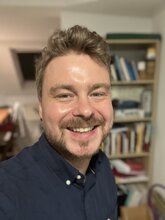
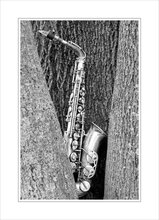

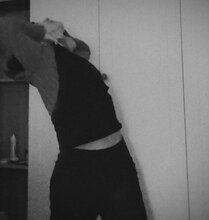
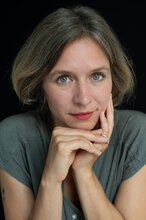
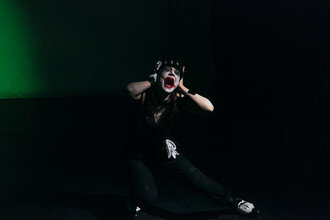
![[Translate to English:] (c)…](/fileadmin/_processed_/0/f/csm_IMG_5002_eeb7fea544.jpg)
![[Translate to English:]…](/fileadmin/_processed_/2/f/csm_IMG_5008_ab48555e02.jpg)

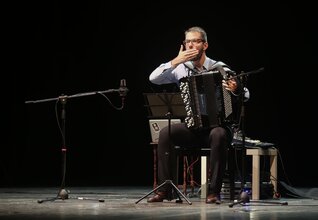
![[Translate to English:] Andy…](/fileadmin/_processed_/3/e/csm_tina_lorenz_portrait_foto_andy_koch_b3d12b69cd.jpg)

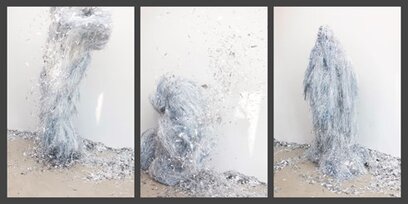
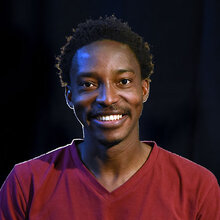
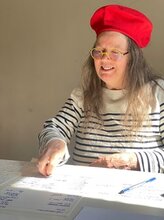
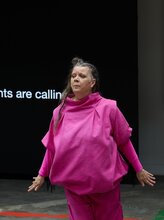
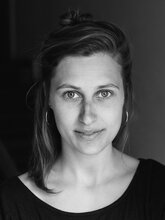
![[Translate to English:] (c)…](/fileadmin/_processed_/1/0/csm_c_Michael_Moennich_3_ed2ee31d8e.jpg)